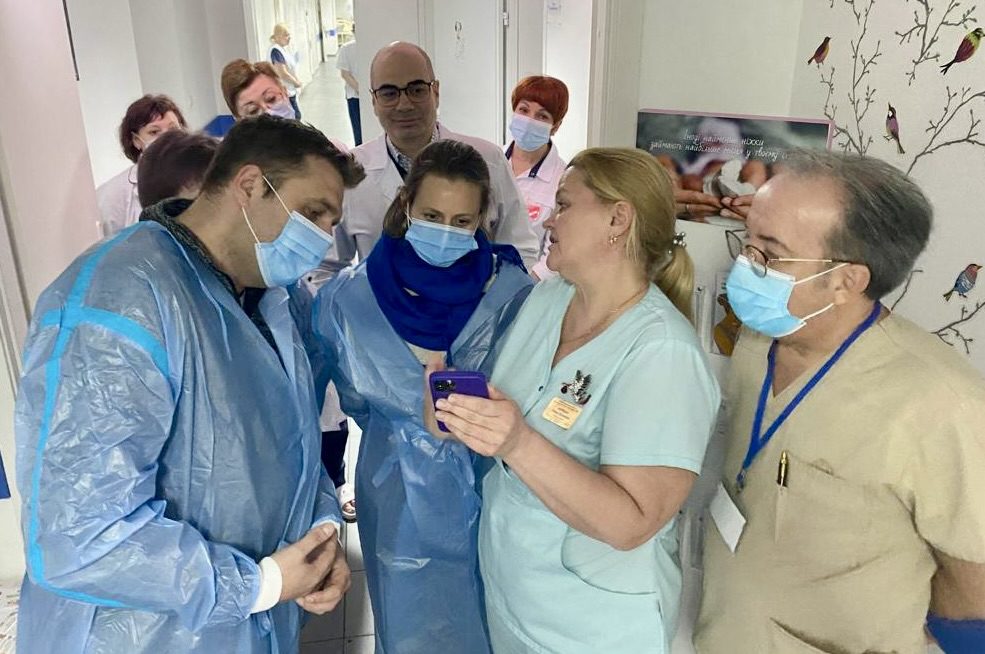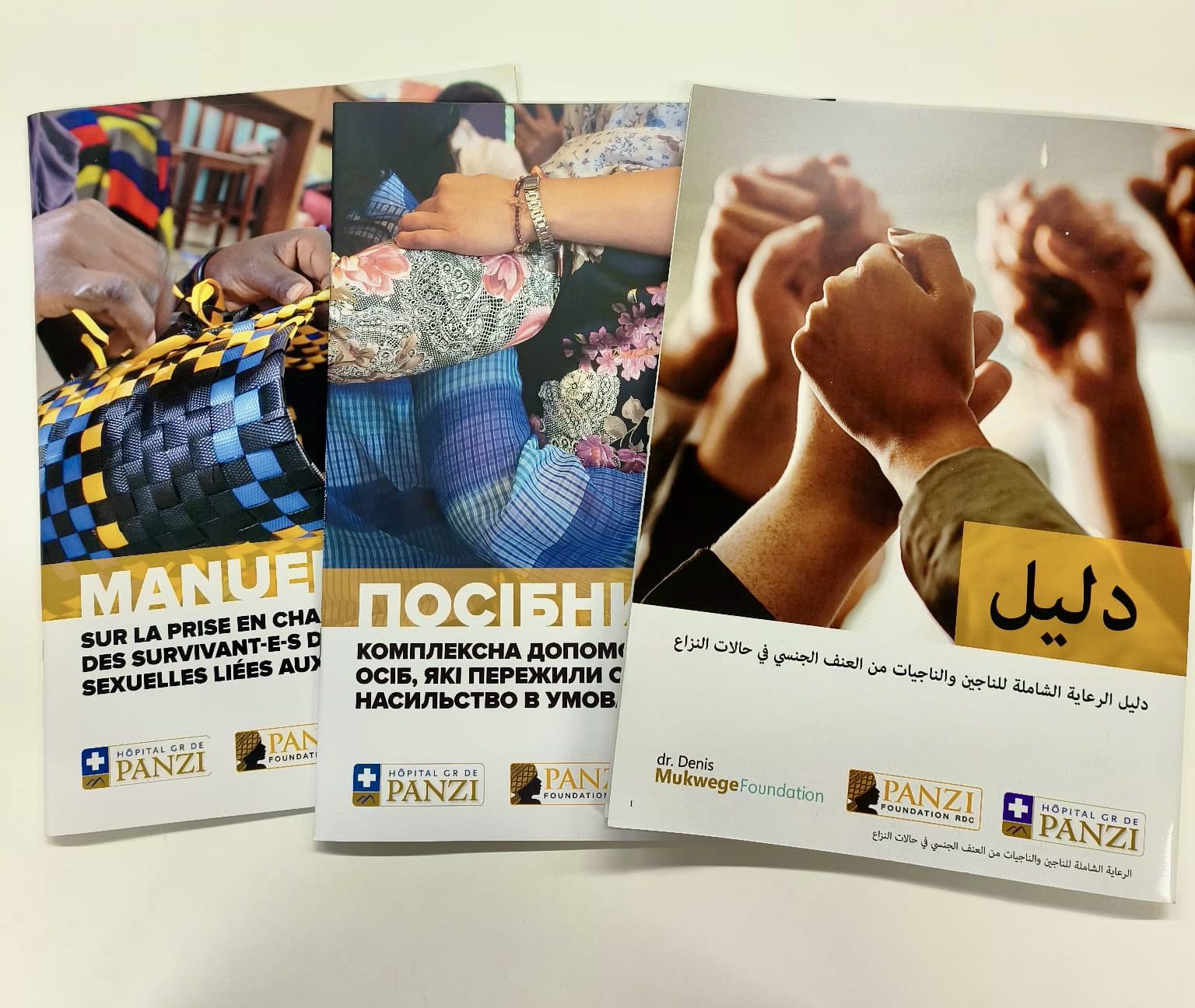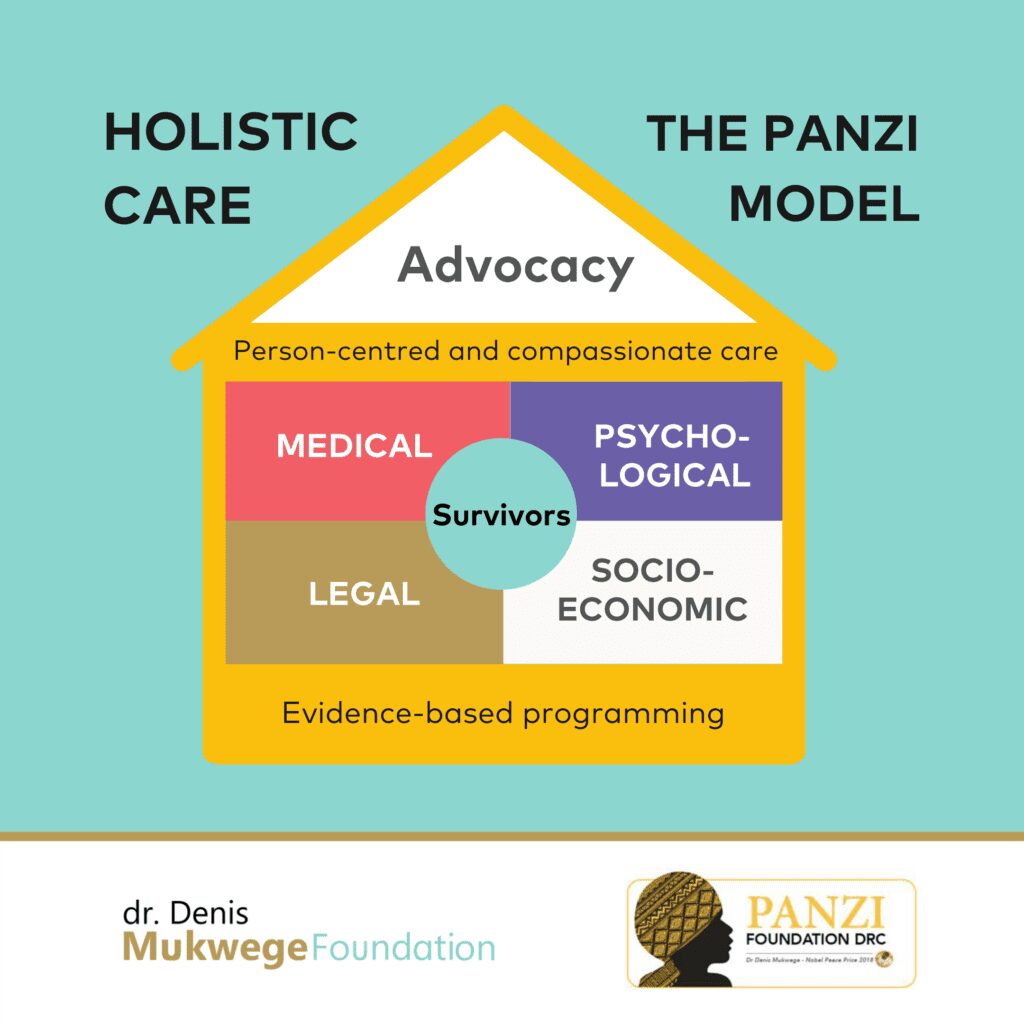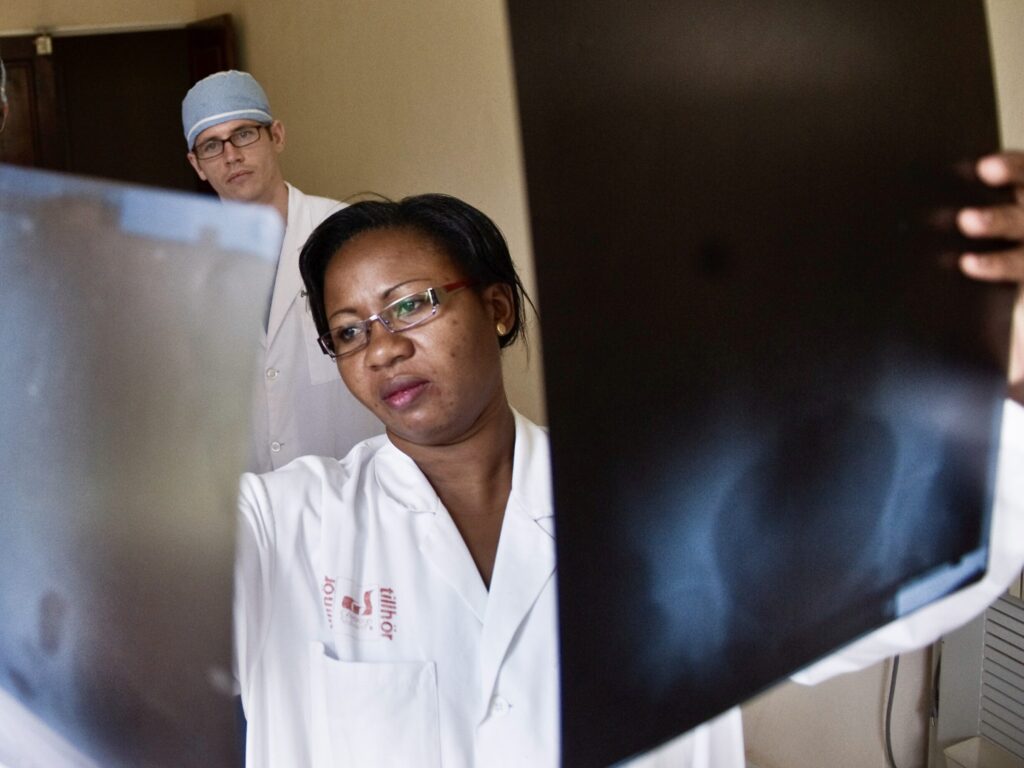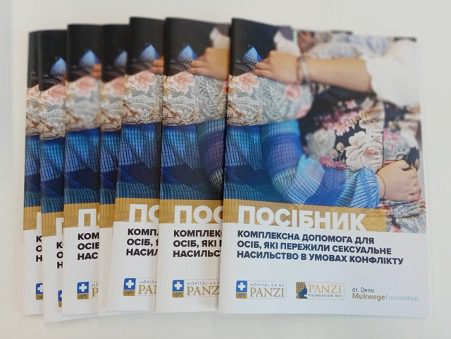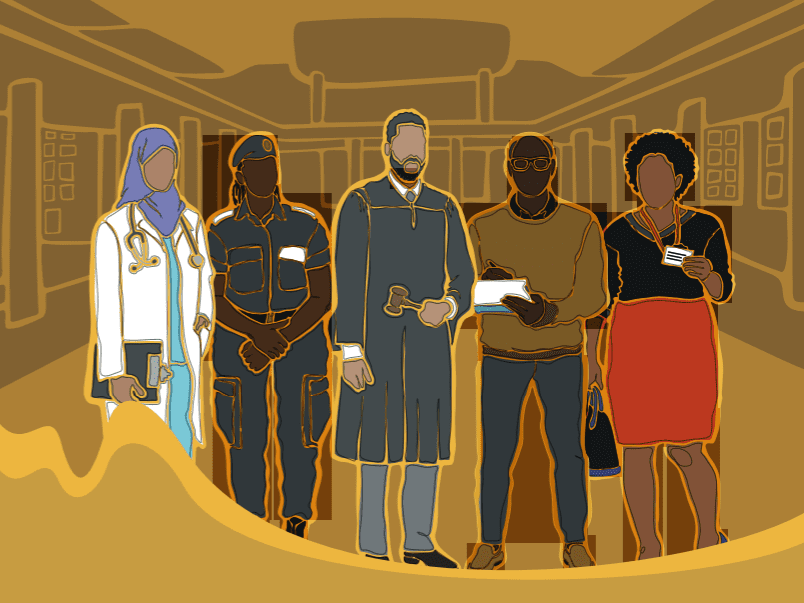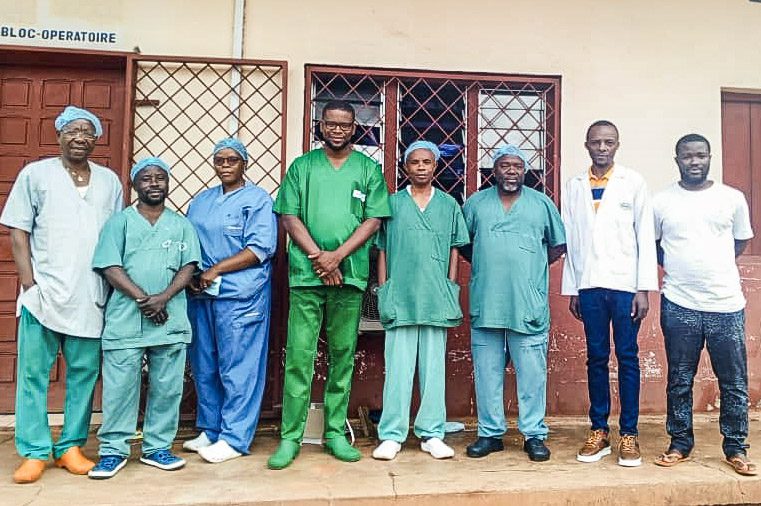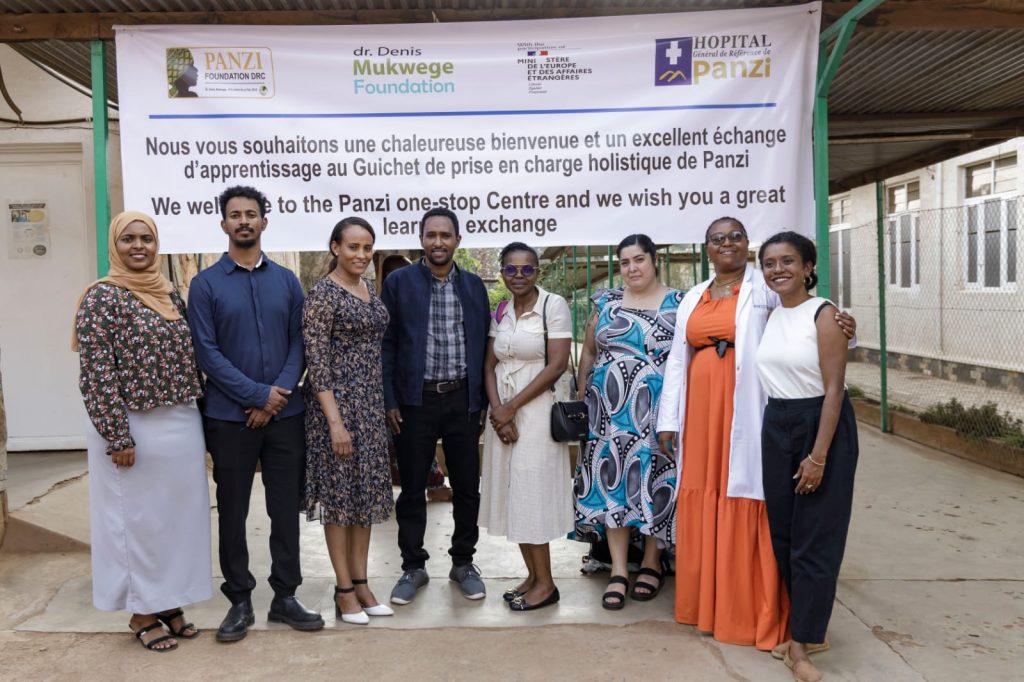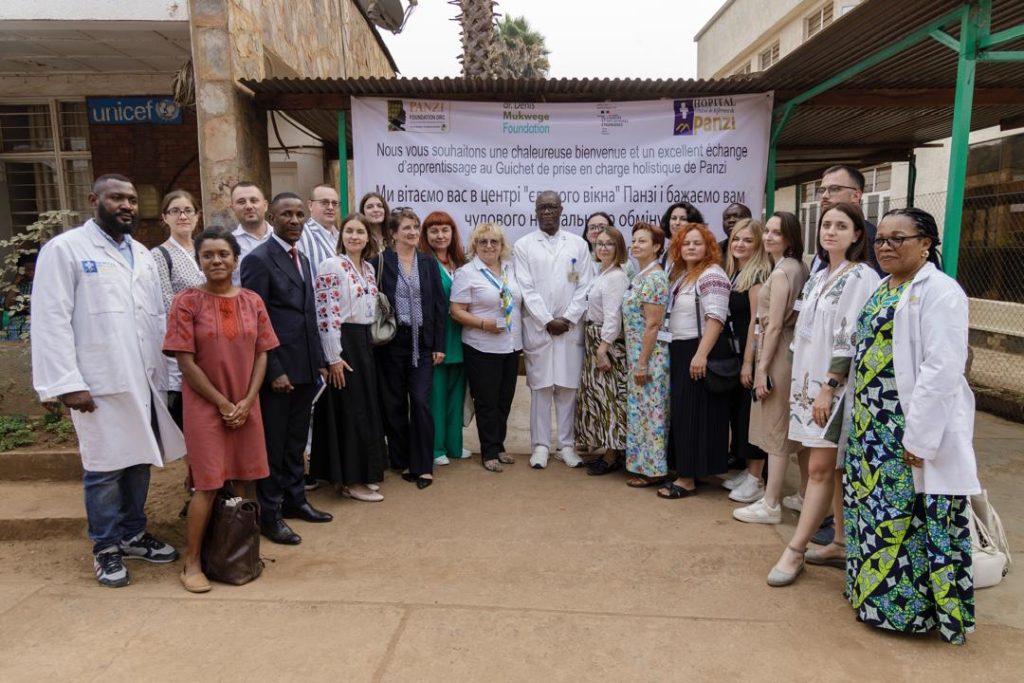The Challenge
Sexual violence in conflict has consequences for everyone. For victims it can cause disability, sexually transmitted diseases, and physical and mental illness. Beyond the individual, it destroys family and community ties, and leaves children born of sexual violence with few rights and little support. The impacts are felt over generations.
Fear, stigma, taboos, and the risk of reprisals prevent victims from speaking out and seeking the care that they need. Even when victims do seek care, too often they receive uncaring treatment at health facilities, police stations, in courts, and from community or family members. They are forced to repeat their stories repeatedly, they do not receive the information they need to make informed choices, and they may even be ridiculed, blamed or treated in dehumanising ways.
This lack of compassionate and trauma-informed care leads many victims of sexual violence to abandon their attempt to get help, leaving them to live with the life-changing physical and psychological consequences of this violence.
Our solution: holistic care for survivors of conflict-related sexual violence
A holistic, survivor-centred approach is needed to address these problems comprehensively.
Victims of sexual violence need care that deals with all the interconnected consequences of sexual violence — medical, psychological, legal, and socio-economic — and to be treated with dignity and compassion.
Inspired by the work of Dr Denis Mukwege and his team at Panzi Hospital in DRC, the Mukwege Foundation advocates for quality, holistic, survivor-centred, and trauma-informed care as a benchmark in the care for survivors of sexual violence in conflict-affected contexts.
The Mukwege Foundation strengthens access to care through technical assistance, funding and support for referrals, capacity building, and in some settings the direct provision of care. Wherever possible, we connect holistic care with survivor-led networks so that survivors can influence and shape the services intended to meet their needs.
Our inspiration
With over 20 years of experience, Panzi Hospital and Panzi Foundation DRC serve as a centre of excellence for holistic, survivor-centred care in the African Great Lakes region.
Panzi General Referral Hospital was originally established by Dr Mukwege to offer quality maternal and reproductive healthcare. However, soon after it opened, Panzi Hospital began to receive victims of brutal conflict-related sexual violence, linked to the devastating war in eastern Democratic Republic of Congo. Since then, Panzi Hospital has treated tens of thousands of victims of sexual violence, and women and girls with grave gynaecological conditions like fistula or prolapse.
The Panzi team realised that to heal, victims of sexual violence need more than medical care and developed a model of care that addresses all the interconnected consequences of sexual violence — medical, psychological, legal, and socio-economic. These services are delivered through a one-stop-centre in which all services are available at one site and coordinated around the needs of each survivor. Today, this model of care is implemented at Panzi in Bukavu, and in four other centres in DRC.
The Panzi model is more than its pillars or structure, it also represents an ethos of survivor-centred and trauma-informed care. Inspired by Panzi’s model of compassionate care, the Mukwege Foundation transfers and implements this model in other fragile and conflict-affected contexts – including the Central African Republic, Iraq, and Ukraine.


